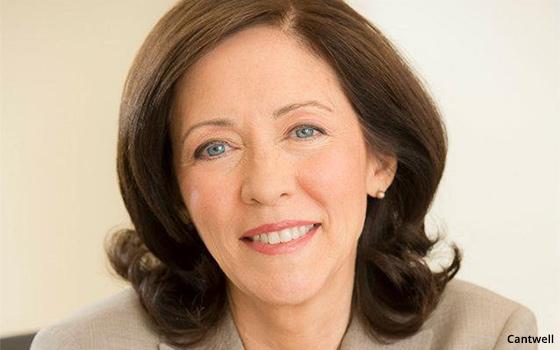
The Federal Trade
Commission's proposed privacy settlement with Facebook is facing new criticism from a lawmaker who says the deal may fail to protect consumers because it appears to allow Facebook to avoid liability
for a broad range of potential privacy violations -- including ones that haven't yet come to light.
“I am concerned that the settlement lets Facebook off the hook for unspecified
violations,” Senator Maria Cantwell (D-Indiana) writes in a letter to the FTC. “Moreover, I am concerned that the release of Facebook and its officers from legal liability is far too broad
and sets a dangerous precedent for future Commission actions.”
The potential settlement, unveiled in July, requires Facebook to pay $5 billion and to accept new oversight on privacy. The
deal must still be cleared by a district court judge.
advertisement
advertisement
If approved, the settlement will resolve an investigation into whether Facebook violated the terms of a 2012 consent decree.
That
earlier order prohibits Facebook from misrepresenting its privacy practices, and from misrepresenting the extent to which it makes users' information available to third parties.
Facebook
allegedly violated the decree in several ways, including by allowing outside developers like Cambridge Analytica access to users' data, collecting phone numbers for security purposes but then using
them for advertising, and misleading people about the use of facial recognition technology.
The proposed settlement covers all violations of the prior consent decree that occurred before June
12, 2019. It also covers any other pre-June 12 violations of Section 5 of the FTC Act, as well as consumer-protection violations, that are currently known by the agency.
Cantwell says that
immunity is too broad. “No matter what the Commission may learn about Facebook's previous practices -- such as human review of user-generated audio chats without clear disclosures to consumers,
and no matter how egregious a violation of the 2012 Order may have occurred -- Facebook will not face another penalty by the Commission under the 2012 Order,” she writes.
She is asking
the FTC to answer a host of questions about Facebook, including how many complaints it has received since 2012 about the company's privacy practices. She also specifically asks whether the resolution
precludes the FTC from prosecuting Facebook for transcribing users' voices in ways that may have violated the 2012 order.